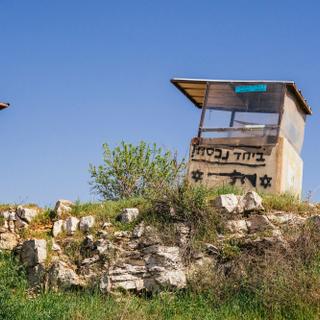


The West Bank suffocated by Israeli soldiers and settlers
FeatureWith raids on refugee camps, air strikes and forced displacements, the Palestinian territory is the scene of a war that does not declare itself as such.
The frail figure of Abla Bsharat, wrapped in a long, dark pink dress, leaned back in the plastic chair in the middle of the family terrace, index finger outstretched toward a low wall on her right. "Adam liked to make himself a coffee and drink it there," said the mother. "He'd just come back from the pilgrimage to Mecca, and I wanted to marry him off." The place was quiet on this Ramadan morning, a little way off the road that runs through Tammun. The small village in the northeast of the West Bank is surrounded by fields and hills that were bright green after the last rains of winter.
On January 8, 2025, 23-year-old Adam changed the water tank on the roof and went to sit on "his" low wall. His two cousins, Reda and Hamza, 8 and 10 years old, joined him there. The school had closed for the day due to the army raid on the town. Reda's mother, Fida Bsharat, wanted her son to stay at home for fear of a stray bullet. Adam reassured her that the soldiers were nowhere near their neighborhood. Less than a minute later, an Israeli missile exploded on the low wall, tearing up the asphalt in this corner of the yard and riddling the wall with shards.
Reda "was open from here to there," said Fida in a rapid flow of voice, tracing a line under her jaw. "His soul was leaving. At the head, on the left, he had a hole a few centimeters long, a piece of brain had come out." The little boy was her only son, born by assisted reproduction after four daughters. Abla Bsharat, who rushed out of the house at the sound of the explosion, barely had time to hold Adam's lifeless body close to her.
You have 85.26% of this article left to read. The rest is for subscribers only.
